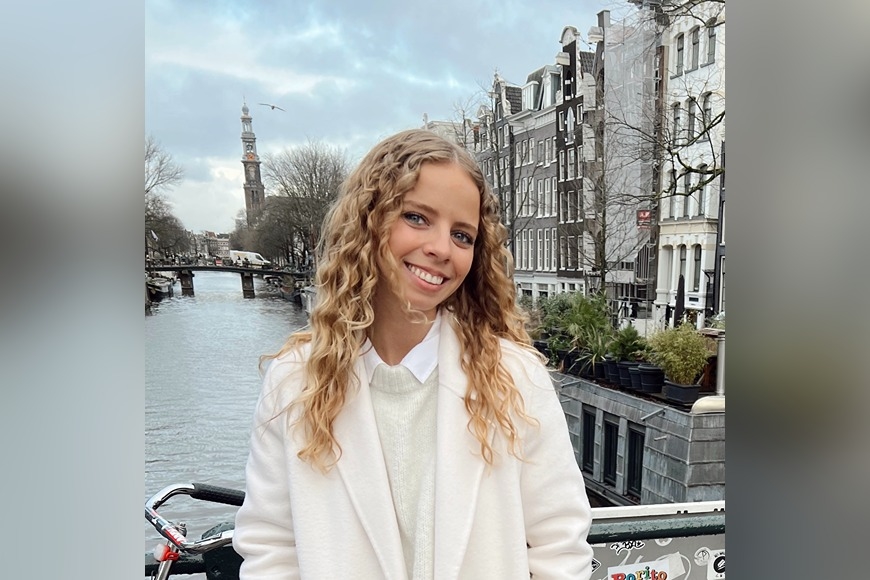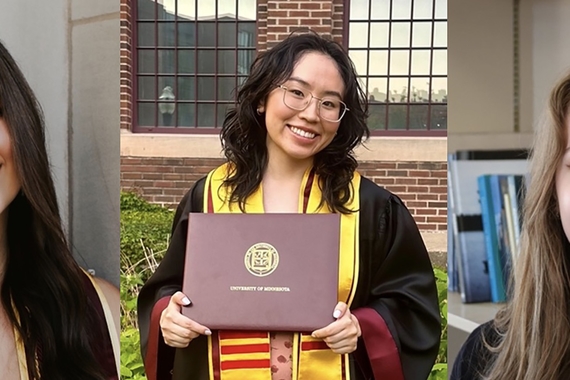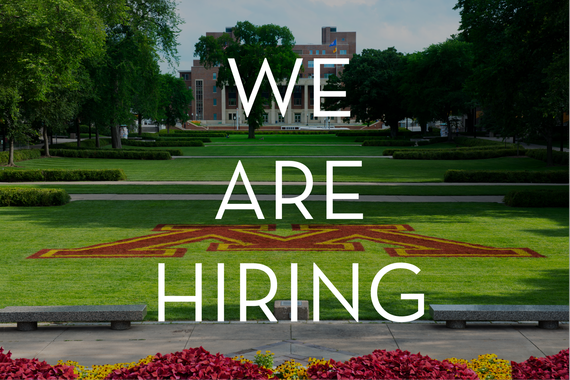"The possibilities that lie ahead"
Olivia Trout is a senior undergraduate student studying technical writing and communications (TWC) with a focus in information technology and design. Career-ready and excited for what the future holds, Trout shares how her major has prepared her to “improve users’ digital experiences” as a technical communicator.
What course would you recommend for other students in your major? For students outside of your major, what course would be a good introduction?
I highly recommend students in the TWC major to take WRIT 3672W - Project Design and Development because it focuses on collaboration through a multimodal project that showcases students’ writing abilities and enhances their visual-design skills.
Additionally, I recommend that students wanting to learn more about TWC take WRIT 1001 - The Art of Explaining Things: Introduction to Technical Writing and Communication because it outlines what it means to be a technical communicator, how to become one, and the wide range of job titles available.
Which CLA class or professor has had the biggest impact on you? Why?
The CLA professor that has had the most significant impact on me is Lee-Ann Kastman Breuch, who was my professor for WRIT 1001 and is one of the three co-directors of TCAB, the Technical Communication Advisory Board, for which I am this year's research assistant. [Note: TCAB is a group of business leaders who provide pathways to experiential learning opportunities for students.] As my professor during the height of COVID-19, Lee-Ann’s approach to online learning was inviting, informative, and engaging, surpassing my expectations.
I attribute my immediate interest in technical communication to Lee-Ann, who was a kind, motivating, and supportive professor. As a boss and mentor figure, Lee-Ann offers opportunities to share and carry out my ideas for improvement, values my perspective as a student, and always treats me with the utmost respect. As I near the end of my time as a college student and the start of my career, Lee-Ann’s trust in me has helped boost my confidence as a writer and incoming professional.
What experiences have you had outside of the classroom that enhanced your understanding of what you are studying?
During my sophomore year, I was a writing intern for Concision Communications, where I attended weekly business meetings and wrote and published 28 blogs. During the summer of 2022, I was a UX writing intern for West Monroe Partners, where I wrote and designed for internal and external client-facing work. Lastly, I am this year’s TCAB research assistant, where I attend weekly meetings with the TCAB co-directors, help plan their events; design and distribute event flyers on campus and social media; and communicate with students, faculty, and board members via email announcements.
Each of these opportunities substantially varied, helping me understand the broad scope of technical communication jobs and influencing my career goals, ultimately leading me to realize that I want to work in the UX field to improve users’ digital experiences. This upcoming summer, I start my full-time position as a UX Writer at West Monroe Partners in Chicago, and I couldn’t be more excited!
What has been your favorite part of your experience with your major?
I love that the TWC major offers a choice of four sub-plans to help students focus on courses relevant to their career goals. For example, many of the courses fulfilling the requirements of my information technology sub-plan overlapped with courses required for my interdisciplinary design minor, highlighting the importance of design within technical communication.
Additionally, many of the courses I’ve taken have had projects that combine written and visual communication, which keeps me engaged, boosts my creativity, and shows me the variety of possibilities that lie ahead in my career as a technical communicator.
What is one aspect of your major that has surprised you?
One aspect of the TWC major that surprised me is the ever-growing need for technical communicators in almost every field—from healthcare to consulting—because we, technical communicators, explain things to people, and people always need things explained to them.



